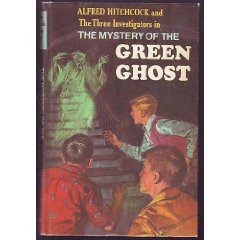Well, Apple’s much anticipated tablet is here: the iPad. Without the benefit of testing it yet, I did a quick tour of the features demonstrated on the Apple website. It looks like a grown-up iPod or iPhone…larger screen and more functions. In fact, maybe it’s the future of laptops — touch screen keyboard, slim design, everything in one place.
I’m most interested in iBooks. I was wondering if vendors would sell a chapter at a time, or the entire book. As Brad Stone pointed out in yesterday’s edition of The New York Times, there is concern that Apple will deteriorate profits and presentation of books the way they have music by allowing users to purchase single songs, rather than entire albums. Already, Google and Acrobat make it possible to keyword search books and articles, so in theory, someone can read a section completely de-contextualized from the larger document. However, a spectre of the larger document is still present, whereas with iTunes, users can download a single song without any experience of the larger context. From the brief description on their website, Apple seems to be selling the book as a single unit, but we’ll see.
Of course, to access these fun features, iPad users must have an account with AT&T. So, our reading will be mediated by both Apple and AT&T. If we don’t wish to have an account with AT&T, we won’t get an iPad. More discomfiting, is if a book isn’t in Apple’s catalog, it won’t be available for reading on their tablet. True, this problem exists with Kindle, but Amazon has such a large catalog, it hasn’t seemed problematic.
Before these technologies, our reading was mediated by what was on our shelves, our libraries’ shelves, and the shelves of our local bookstores. Now, in theory, the world is at our fingertips. I have to wonder what we’re losing, though. I remember as a kid finding old books like Hitchcock’s The Three Investigators series serendipitously at my local library.
No one would have recommended it to me and I don’t think it will be a candidate for iPad, but Hitchcock told good stories and I much preferred his series to the more popular Nancy Drew because they were less predictable. What serendipity are we losing by relying on e-catalogs instead of local bookshelves? Definitely, a counter-argument can and is being made for increased accessibility, but I wonder if, the goal is ease of access rather than breadth and relevance of material. Taken a step further, are these new devices selecting popularity over quality, and if so what will we miss?



You are not loosing serendipity, but you can have random, or thoughtful serendipty, and you can have it all the time: when you are bored (and your iPad notices you don’t flip the pages as you used to) when you are finished, when you just bought one (not ideal on that device) but more importanlty, when you are far away from a bookshop.
I live atop of the most beautiful bookstore in the world: I don’t have to put on shoes to go there, and trust me I’m there all the time:
http://galignani.com/en/galignani.php
But even I can tell you: that device will make me read and buy more books. Ask any Kindle reader. I’ll probably spend more time making presentations on it—but still. Ether is the best bookstore.
I want to argue that serendipity is limited by whatever is in the catalog, and that access may be prioritized over quality in criteria for inclusion. I also want to use browsing bookshelves in the library as an example of research serendipity — finding the exact section of interest and then perusing the shelves. But I see problems with both arguments.
Also, I’ve found Amazon’s suggestions for texts I’d like pretty serendipitous…Netflix as well. Not always, and not usually, but enough to make me pause before arguing that we’re completely losing it. So, serendipity may be different digitally, but not non-existent.
There’s a certain quiet in my mind when I’m wandering bookshelves, though, and I feel the opposite when looking for texts online — frantic is a better description, rushed, urgent, only because there’s so much to search through. This is a different argument, though, but important when considering serendipitous moments. I can’t really experience the luxury of seeing connections or the space to find them if I’m overwhelmed by information. With bookshelves, I can see the end of the space. I know the scope of my options. With online texts and music stores, Google Books for example, or Apple iTunes, the options seem endless.